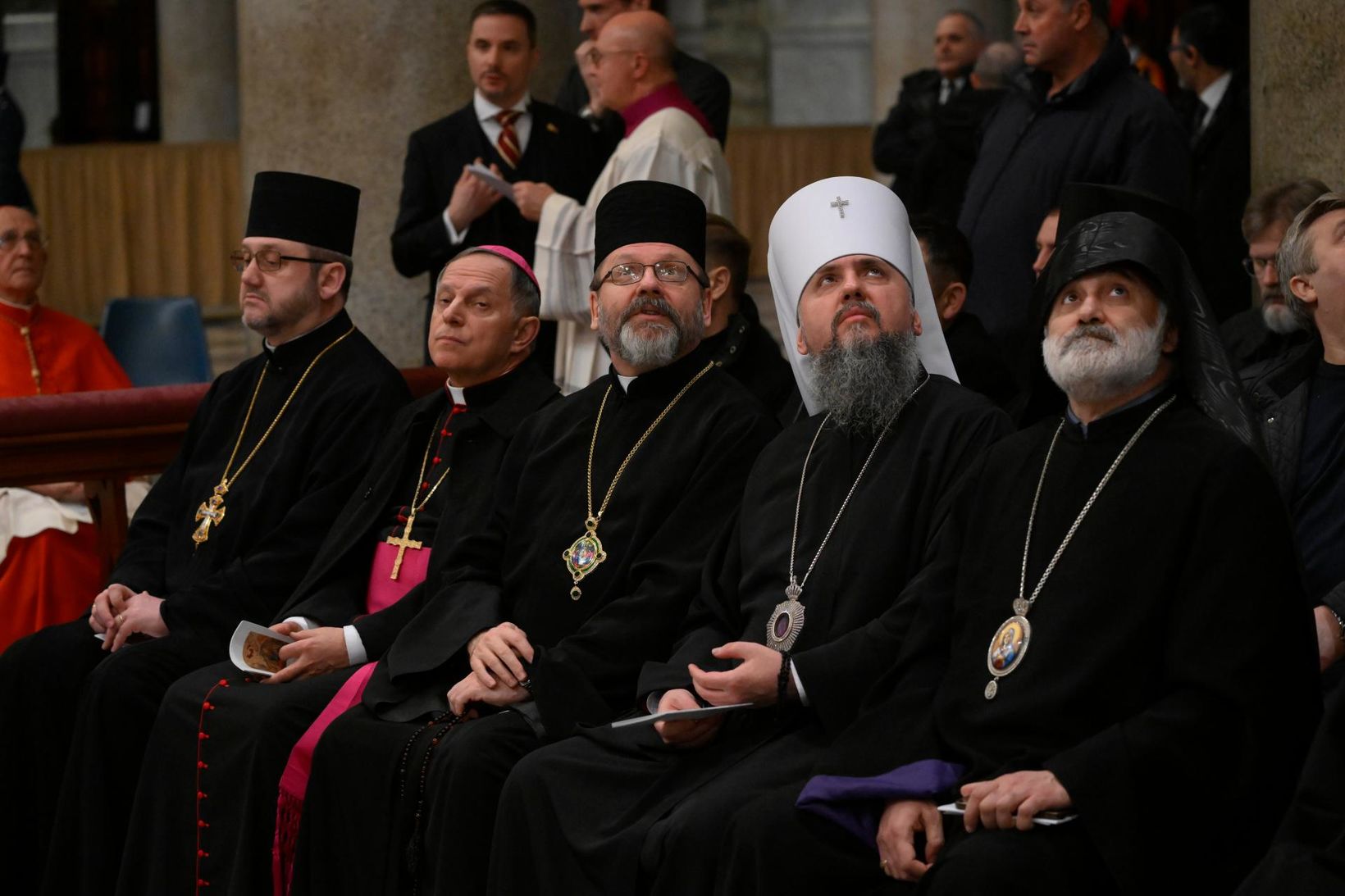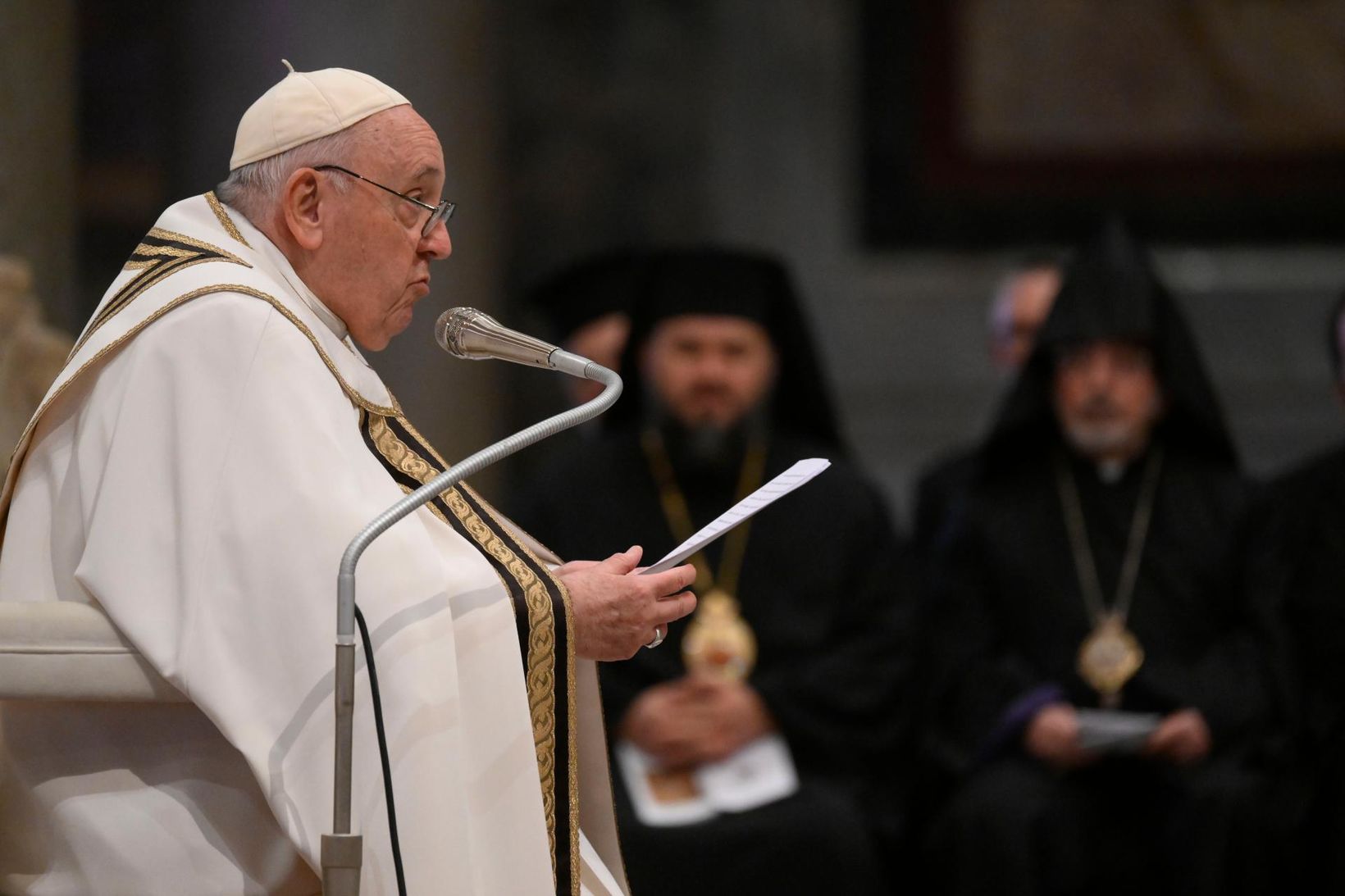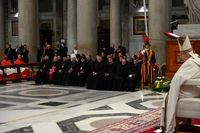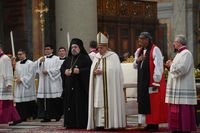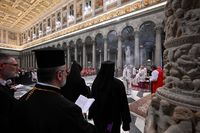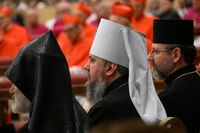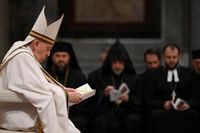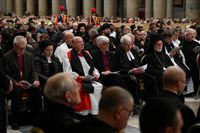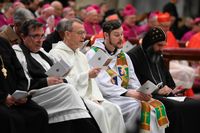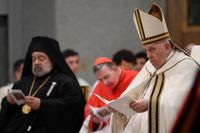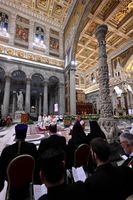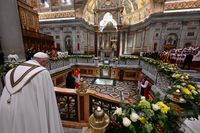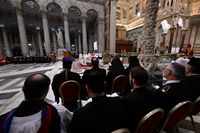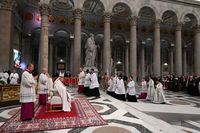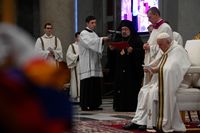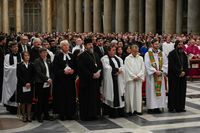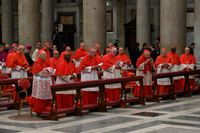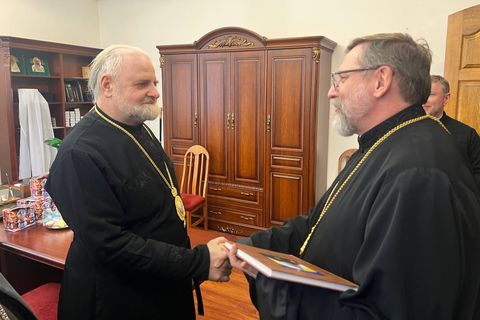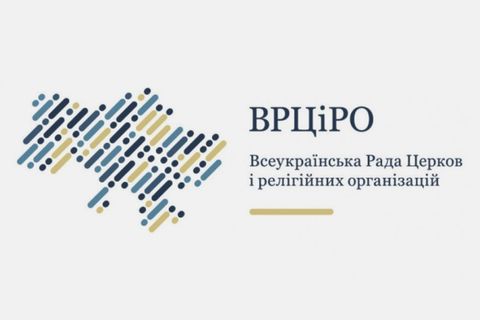Pope tells all Christians to oppose war and injustice wherever they appear
Pope Francis celebrates Vespers at the conclusion of the Week of Prayer for Christian Unity with a reflection on how all Christians are asked to reflect on their wrongs and change their perspective, always putting God at the centre.
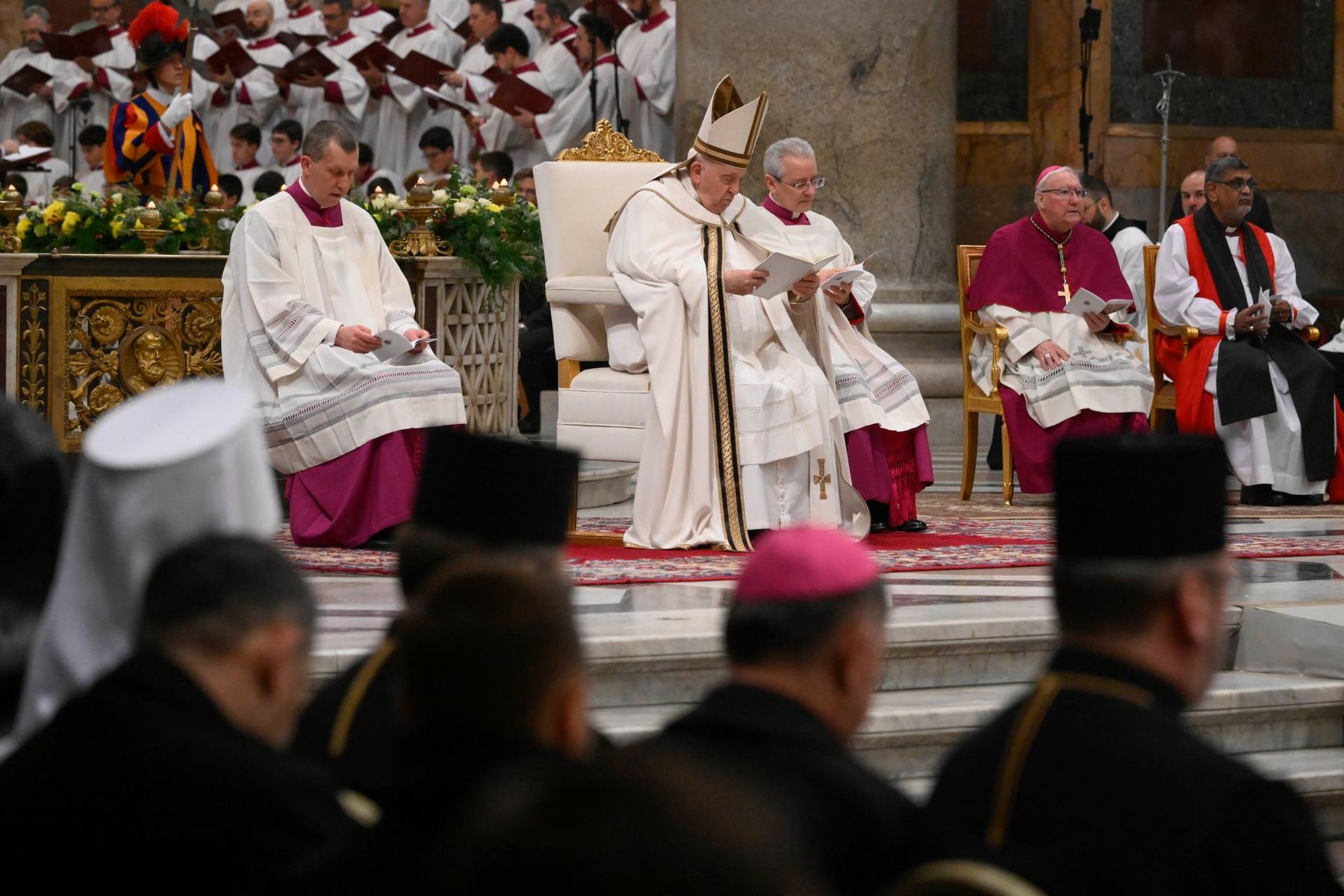
The Lord is grieved by our indifference and lack of understanding before sacrilegious violence Pope Francis said during his homily at Vespers on the Feast of the Conversion of St. Paul, and he called for action to oppose war, violence and injustice wherever they begin to appear.
Celebrating the liturgy to mark the end of the annual Week of Prayer for Christian Unity in the Basilica of Saint Paul’s Outside the Walls, the Pope invited Christians of all denominations to change and walk the path of unity “the Lord has placed before us.”
The Holy Father reflected on the readings of the day that call for change, and noted that “we celebrate the joy of coming together as brothers and sisters in Christ” in days that are so “full of tragic and troubling news reports.”
“We could perhaps easily dispense with such biblical condemnations of the sins of society! Yet if we are sensitive to the profound unease of the times in which we are living, we should be all the more concerned for what causes suffering to the Lord for whom we live,” he said.
Але крім цього, Всевишній вказує на ще більшу кривду щодо Себе, якою є “святотатське насильство”. Говорить Бог через пророка: “Руки ваші повні крові. Обмийтеся, станьте чистими; усуньте з-перед моїх очей нікчемні ваші вчинки; перестаньте чинити зло!”. За словами Святішого Отця, Господь “роздратований” насильством, “що чиниться проти Його храму, яким є людина, в той час, коли Йому віддають честь у храмах, споруджених людиною”. “Можемо собі уявити, з яким болем Він змушений спостерігати за війнами та насильницькими діями, розпочатими тими, хто називає себе християнином”, — мовив Папа, наголошуючи на тому, що віра вимагає критичного підходу до тих, хто “вважає, що може почуватися заохоченим, або принаймні авторизованим своєю вірою, підтримувати різні форми закритого та насильницького націоналізму, ксенофобську поведінку, зневагу, а то й кривдження тих, хто є інакшими”.
“Тему цього Тижня молитов обрала група вірних Міннесоти, усвідомлюючи несправедливість, сподіяну в минулому проти корінного населення та проти афроамериканців у наші дні. Перед обличчям різних форм презирства та расизму, перед обличчям байдужого нерозуміння та святотатського насильства, Боже слово попереджає нас: ‘Навчітеся добро чинити; шукайте справедливість’. У дійсності, мало засудити зло, потрібно відректися від нього, перейти від зла до добра”, — наголосив Єпископ Риму.
Do good, seek justice
The Pope recalled the theme of this year’s Week of Prayer — “Do good; seek justice” — explaining that God admonishes us to renounce evil and urges us to change.
“Admonishment and change are the two words on which I would like to reflect with you this evening,” he said.
Taking his cue from the prophet Isaiah, the Holy Father said the Lord does not desire “incense and offerings, but that the poor receive assistance, that justice be rendered to the orphan, that the cause of the widow be upheld.”
He said that God suffers “when we, who call ourselves his faithful ones, put our own ways of seeing things before His, when we follow the judgments of the world rather than those of heaven, when we are content with exterior rituals yet remain indifferent to those for whom He cares the most.”
In addition to this, he added “there is a second and more serious motive that offends the Most High: It is sacrilegious violence.”
This admonition of the Lord, he continued, gives us much food for thought, as individual Christians and as Christian confessions.
We have no excuses
“I would like to state once again that today, with our developed spirituality and theology, we have no excuses,” the Pope said.
Still, there are those who appear to feel encouraged or at least permitted by their faith to support varieties of narrow and violent nationalism, xenophobia and contempt, and even the mistreatment of those who are different.
Faith, he added, must maintain “a critical sense in the face of these tendencies, and prompt an immediate response whenever they rear their head.”
With God all is possible
The Pope went on to say that after diagnosing our wrongs, the Lord asks us to remedy them.
“Due to our failure to understand God and the violence that lurks within us, we are incapable of setting ourselves free,” he said, reminding those present that, “without God, without his grace, we are not healed of our sin.”
He reflected on how conversion is communitarian and ecclesial in nature, and invited all Christians to be open, together, to a change of perspective.
To rediscover that “all the faithful throughout the world are in communion with each other in the Holy Spirit, so that — as Saint John Chrysostom wrote — ‘those who dwell in Rome knows those in India to be part of the same body”.
Finally, Pope Francis expressed gratitude for this journey of fellowship and for the participation and interest of so many Christians for the synodal journey of the Catholic Church, “which I trust will become increasingly ecumenical.”
And inviting those present to continue to grow through praying, serving, engaging in dialogue and working together towards the full unity that Christ desires, he offered his thanks to all the Christian communities present for the celebration.
Vatican News